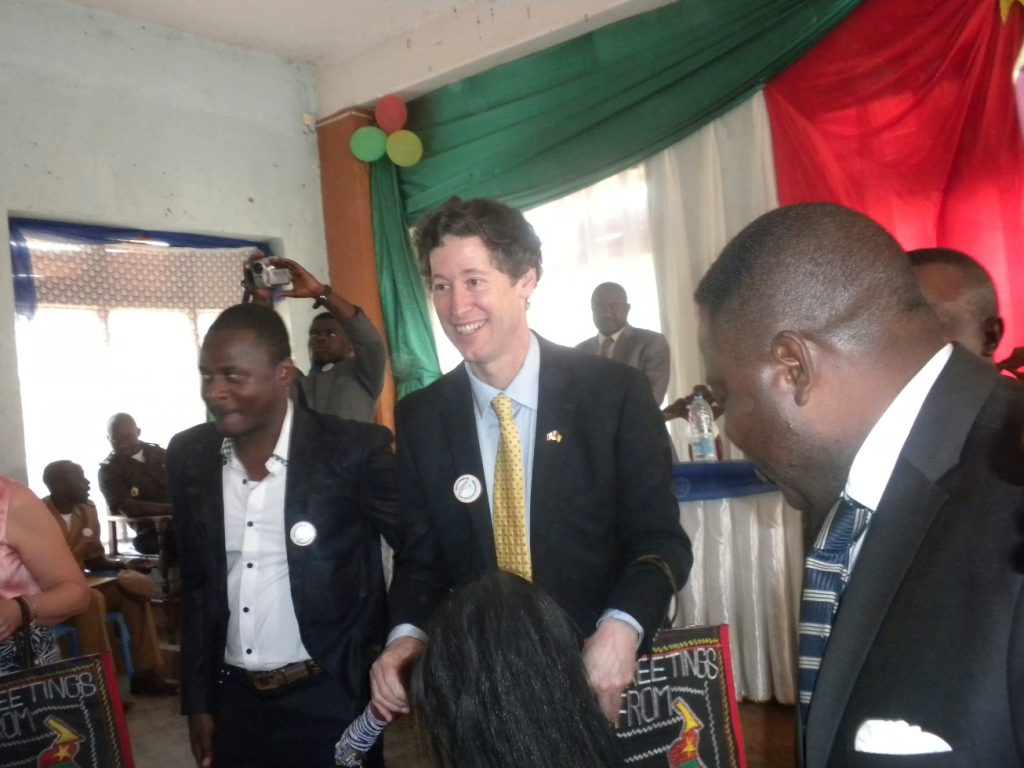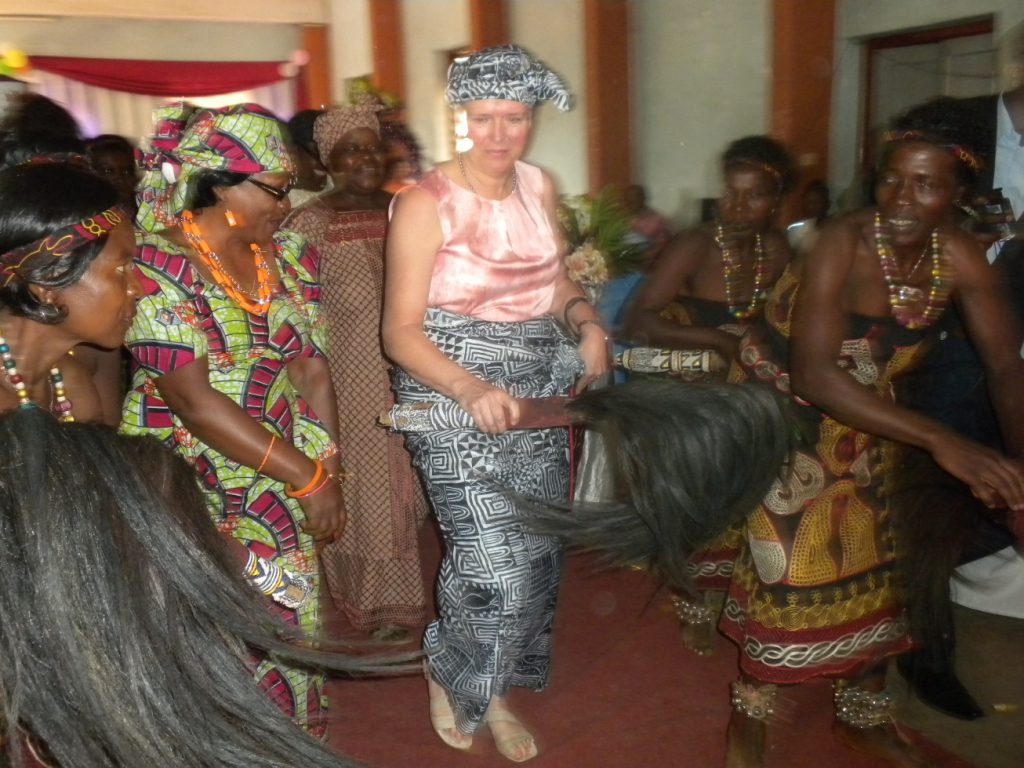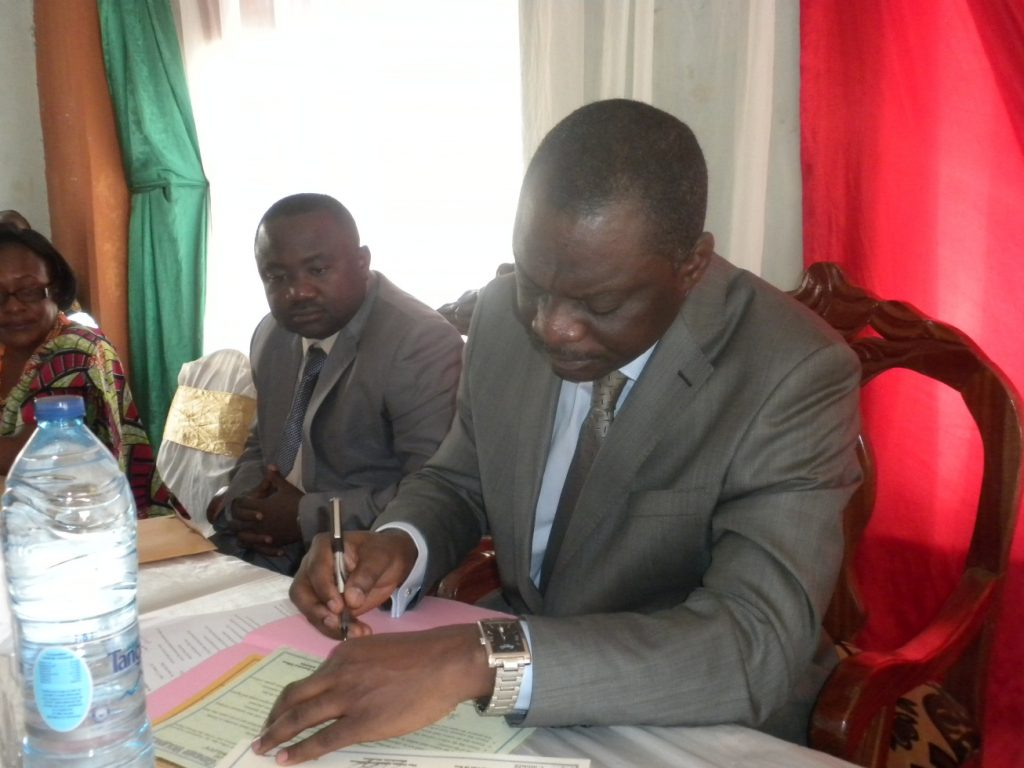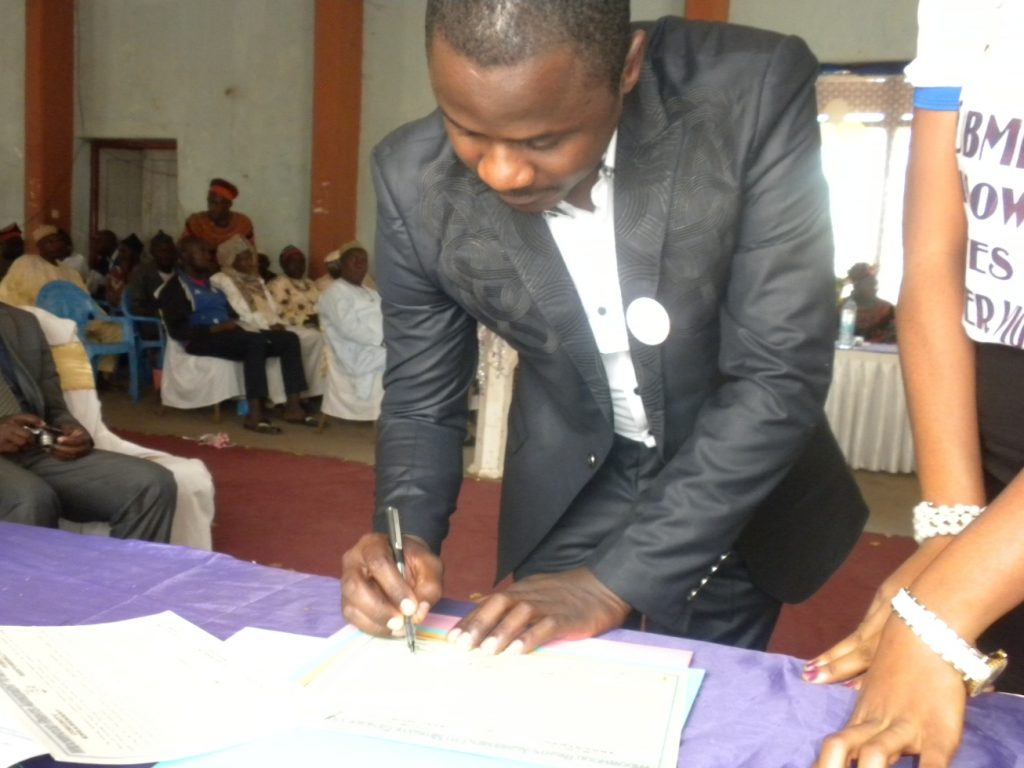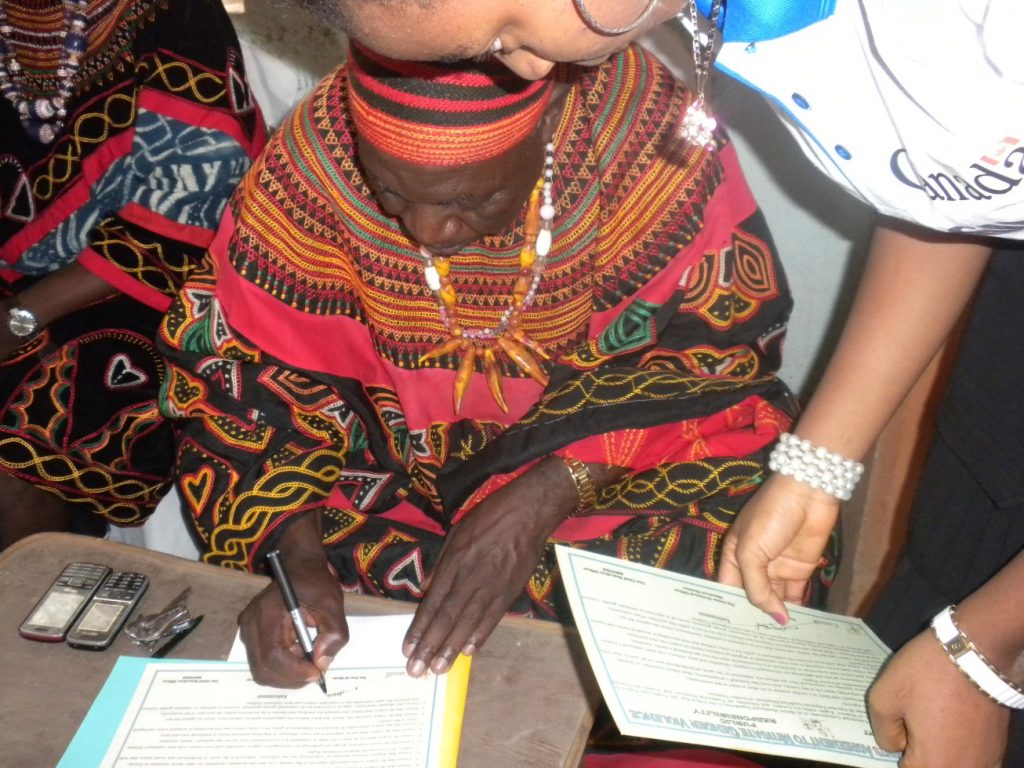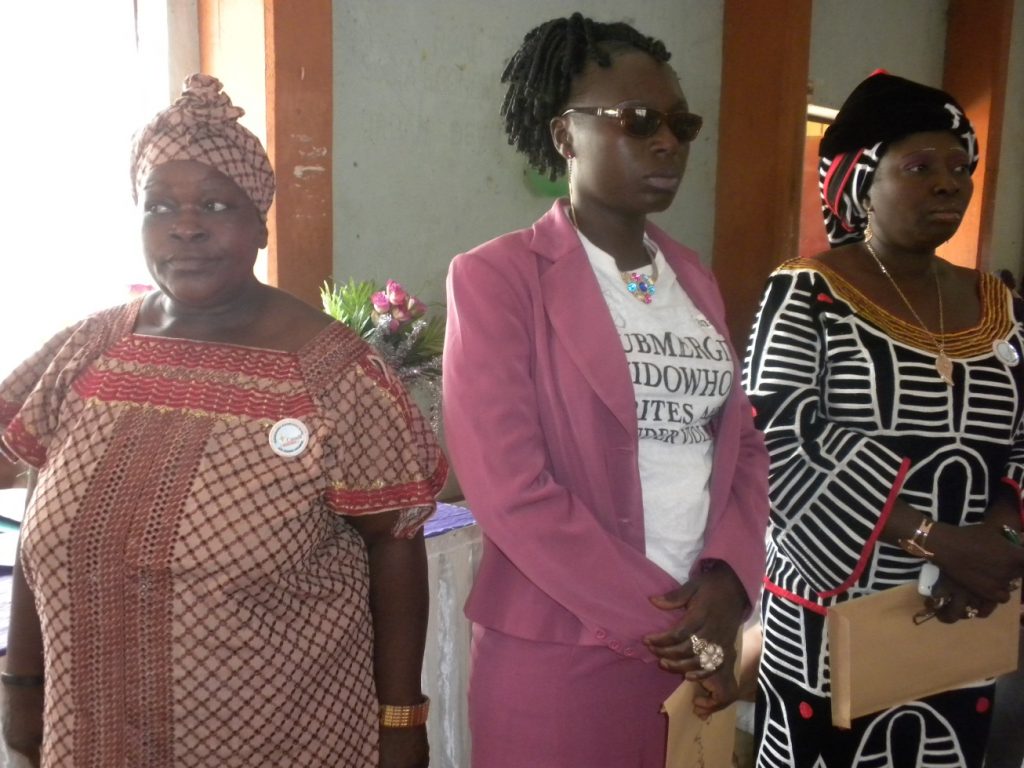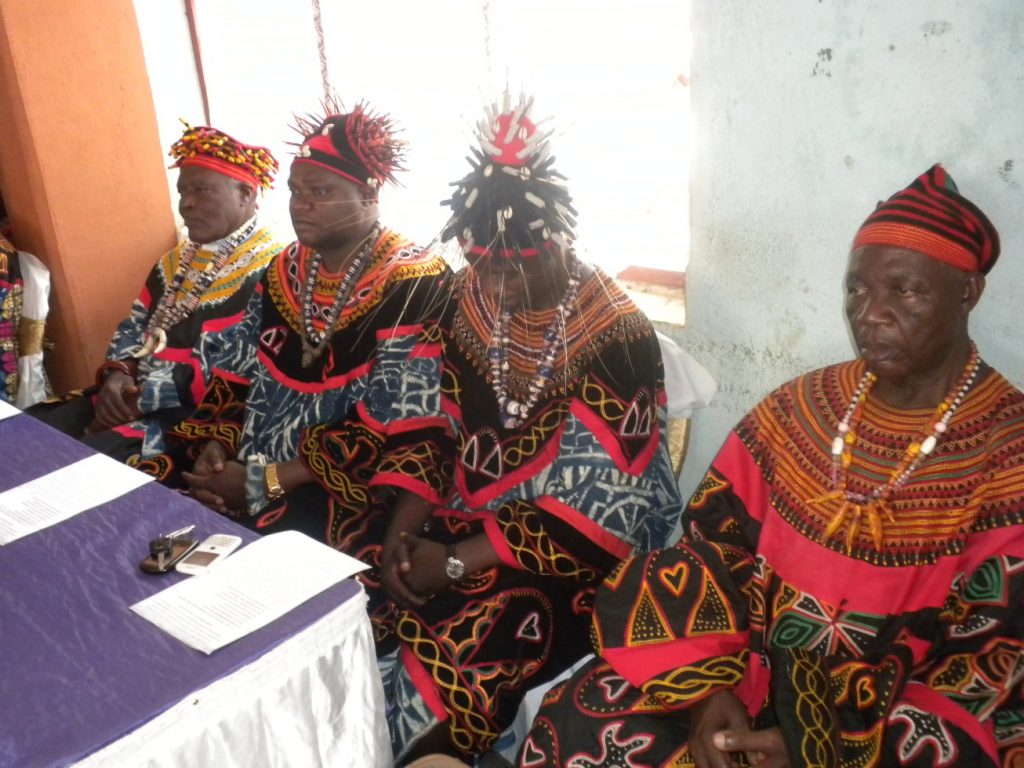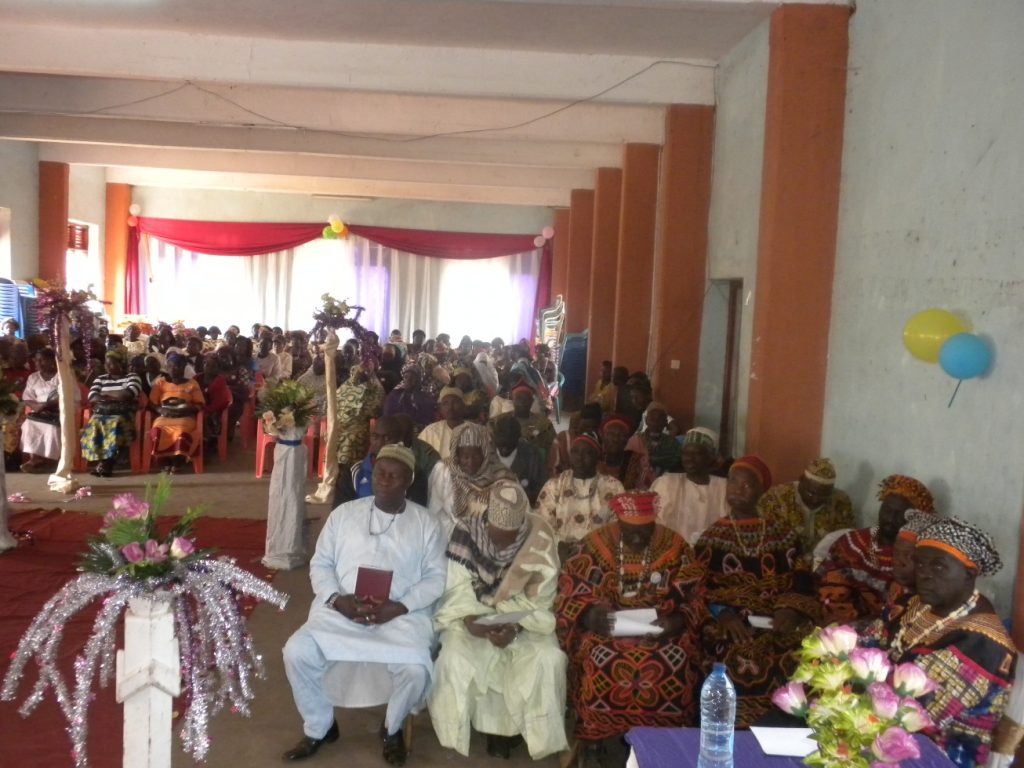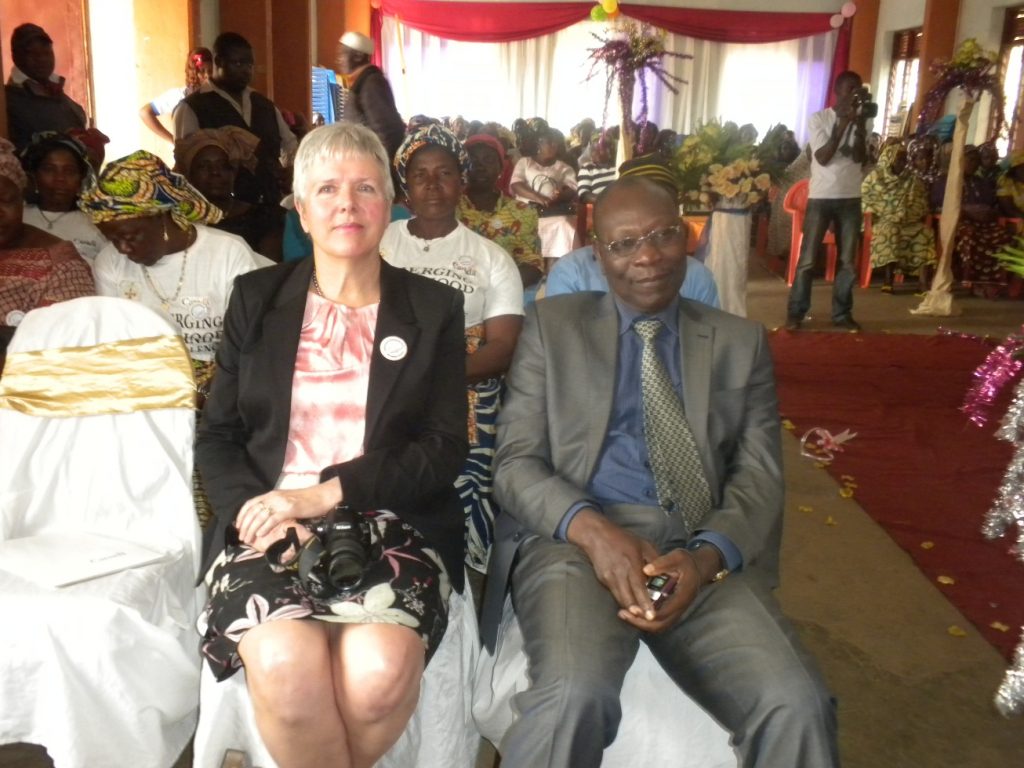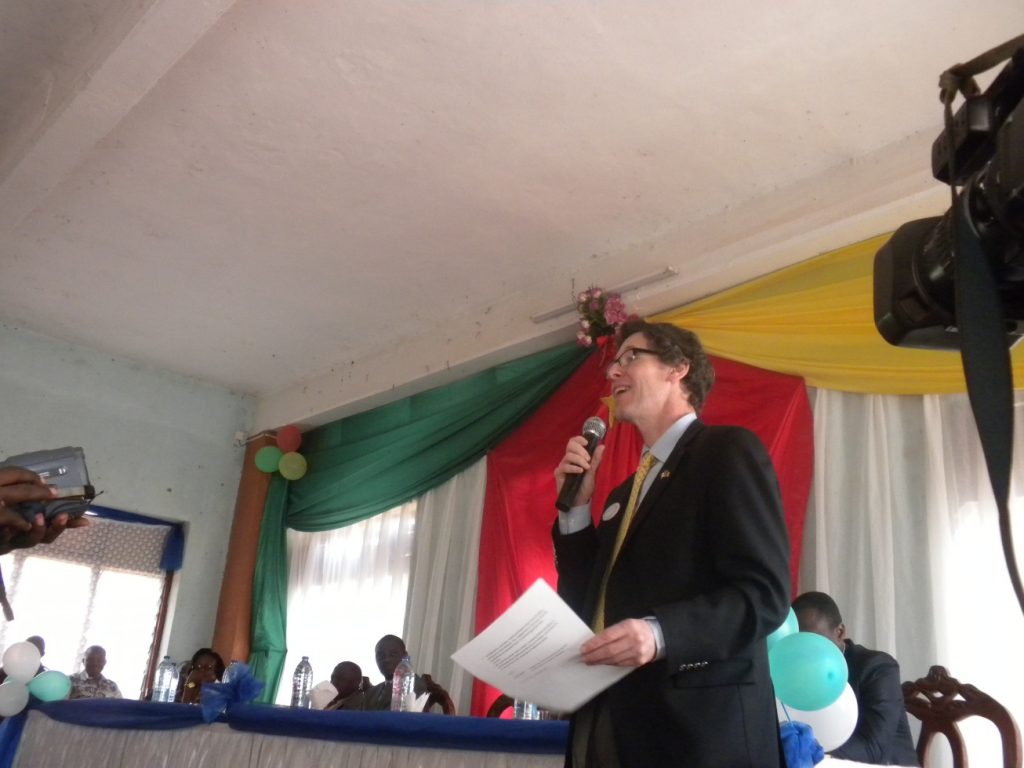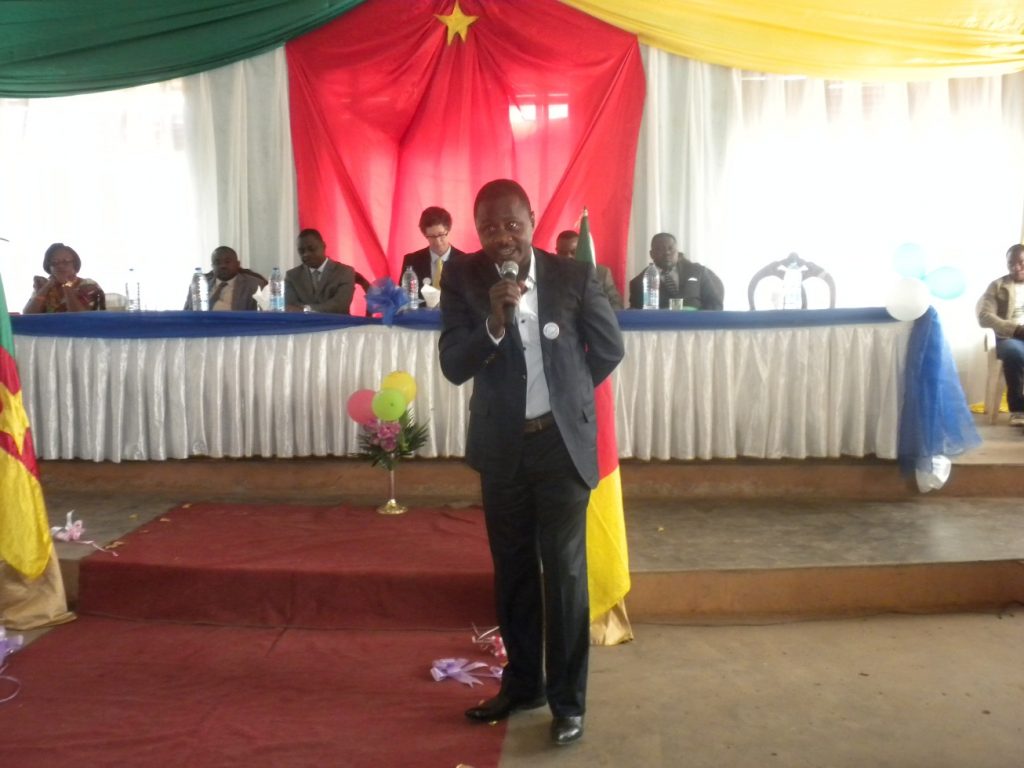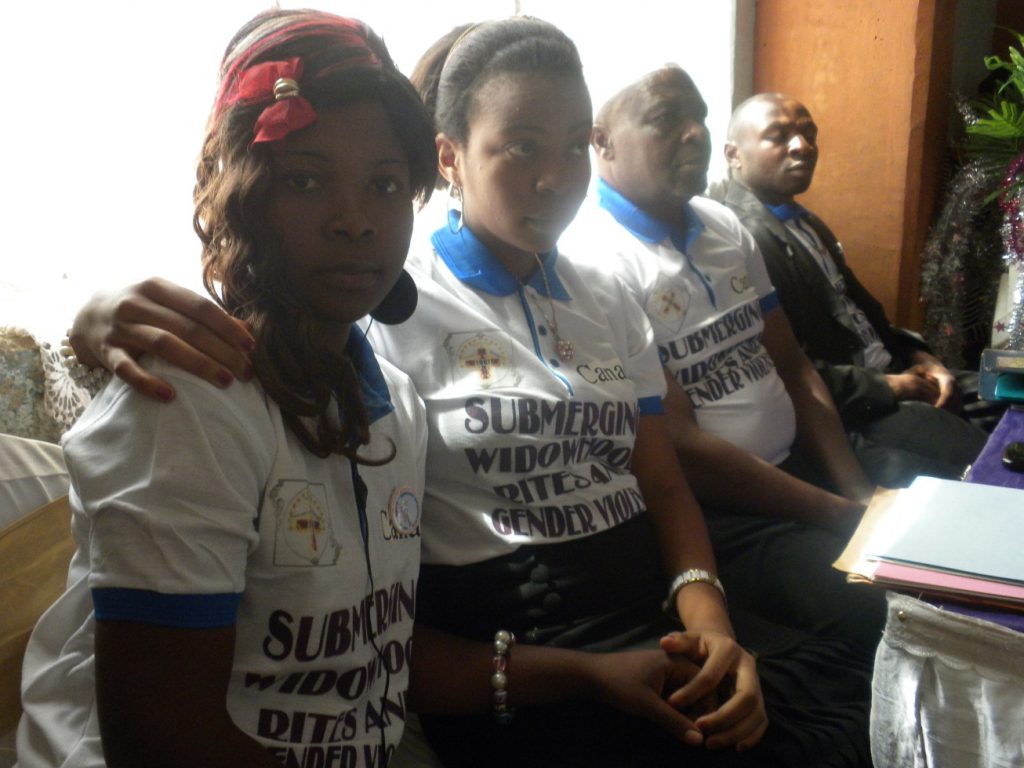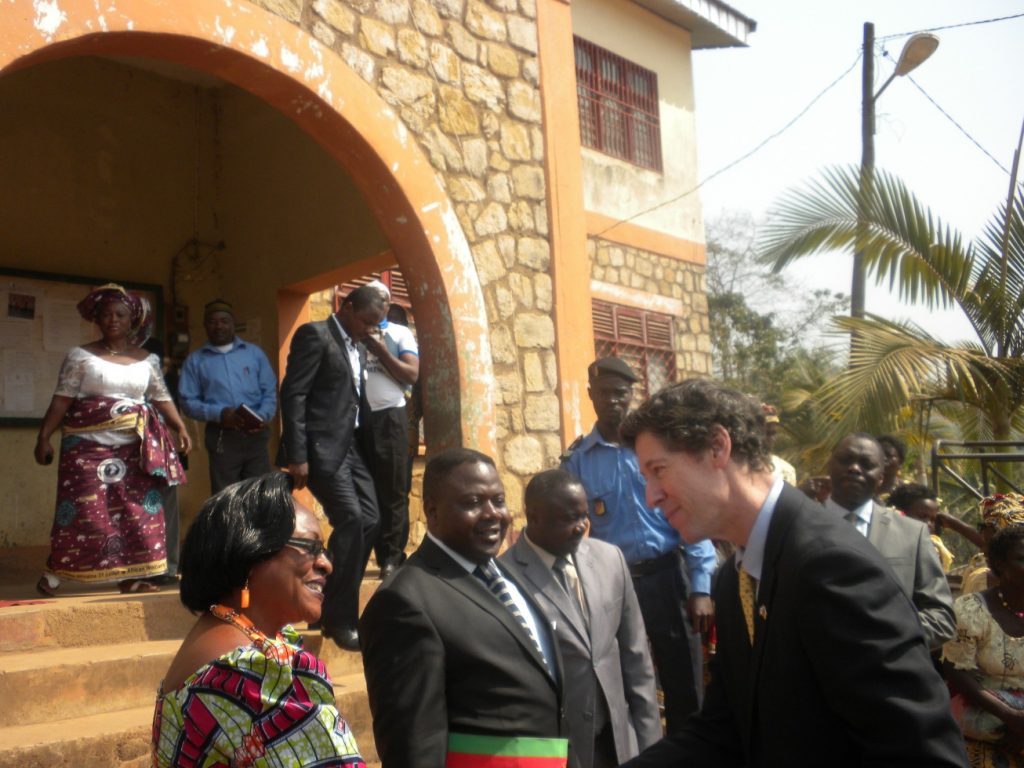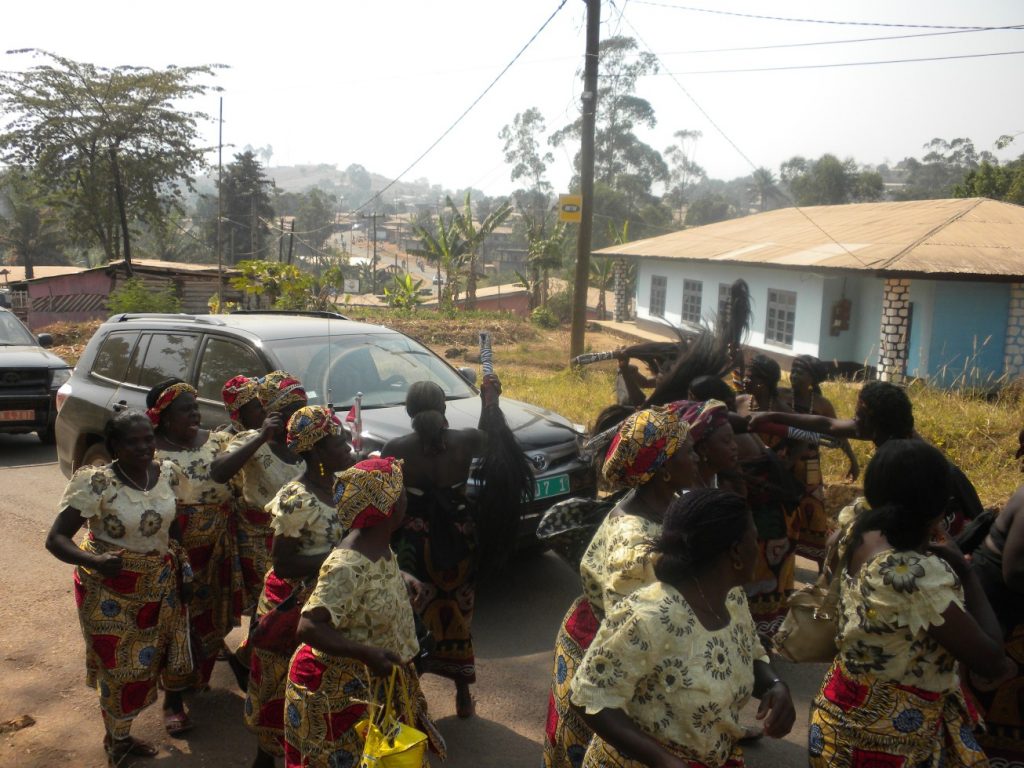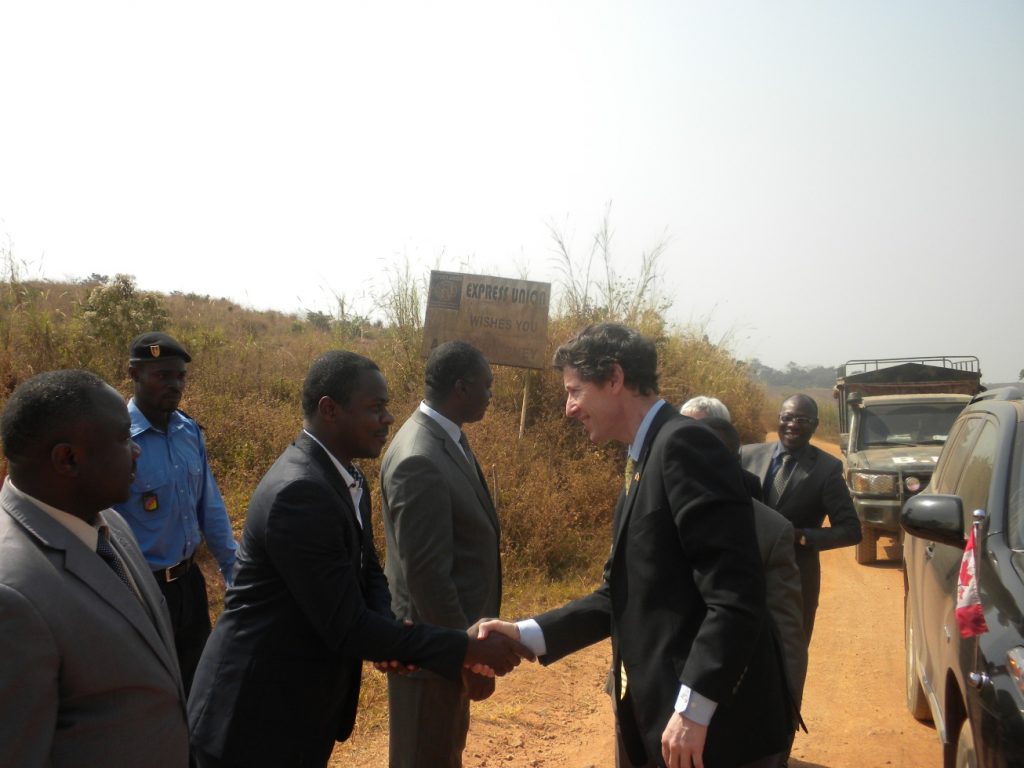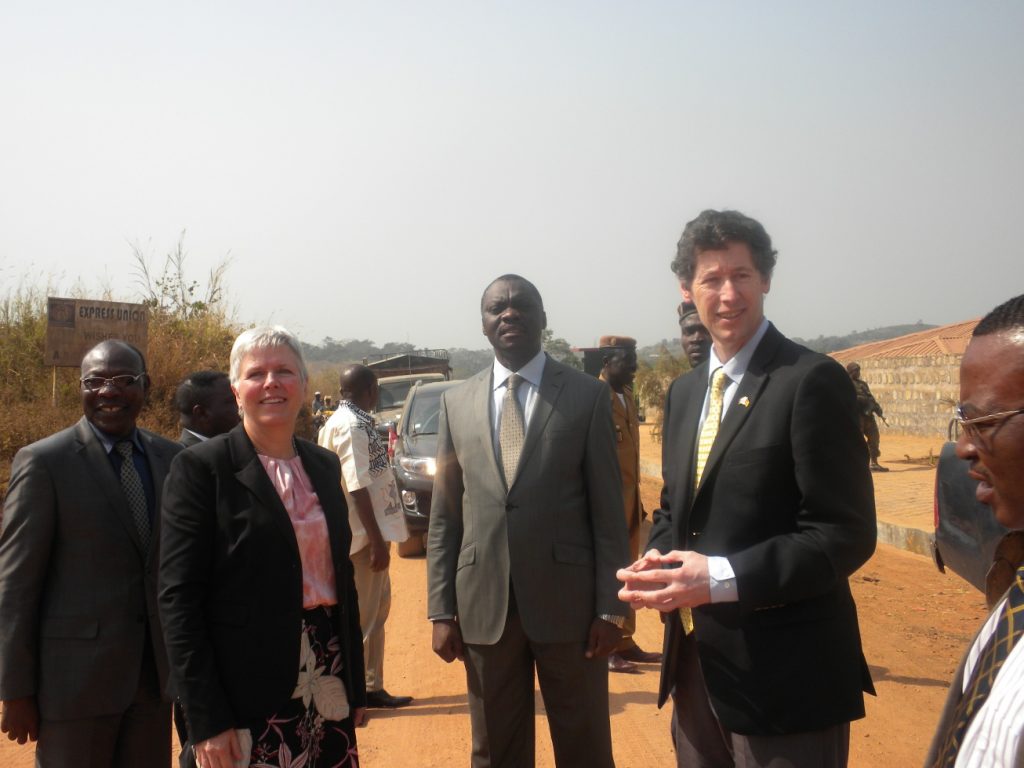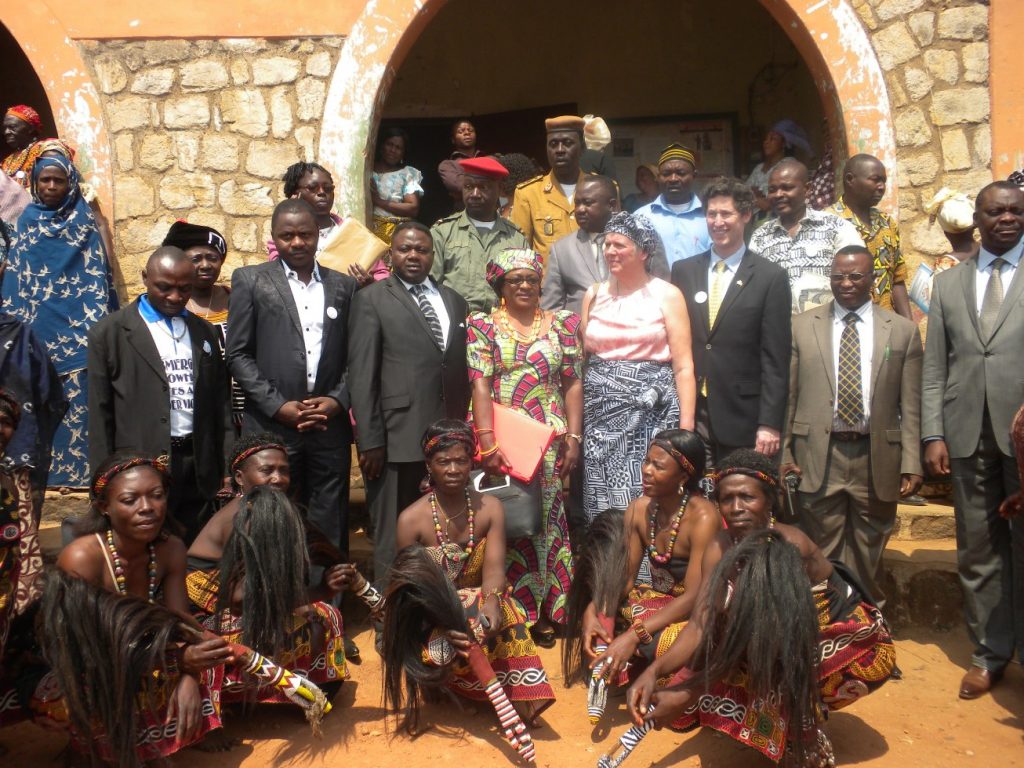MAHSRA’s Public Presentation and Ceremony of Widowhood Rites to Rights Initiative
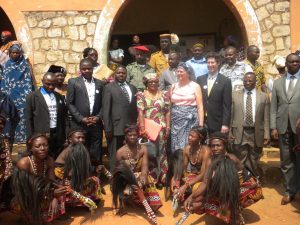 On the occasion of the official public presentation and ceremony of the widowhood rites to rights initiative for Esu, Weh and Wum localities that held on the 16th of January 2015 at the Wum Council Hall, the effective realities and pragmatic framework of international policy implementation towards the well-being and positive rights-based aspirations of vulnerable community women where made evident.
On the occasion of the official public presentation and ceremony of the widowhood rites to rights initiative for Esu, Weh and Wum localities that held on the 16th of January 2015 at the Wum Council Hall, the effective realities and pragmatic framework of international policy implementation towards the well-being and positive rights-based aspirations of vulnerable community women where made evident.
In order to commemorate the series of activities (including road awareness sensitizations, women’s human rights trainings and group management and organizational capacity building sessions) that had been taking place in Esu, Weh and Wum localities, the event of the public presentation acted as the focal point that demonstrated the difference between pragmatic and theoretical levels of policy advocacy. This was noted through the instrumental exchanges of signatures between traditional and the local government authorities to ensure that effective measures are harnessed to eliminate the barbaric widowhood rites practices that are a day to day reality within the concerned localities and beyond.
Activity galleries are accessible in the links for Esu gallery, Weh gallery, and Wum gallery
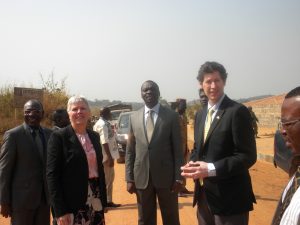
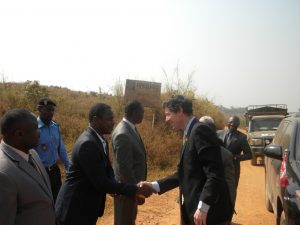
The occasion which started at 10:45am was preceded by the arrival of the Canadian Commissioner to Cameroon Rene Cremonese accompanied by the Governor of the North West Region. They were received by the Senior Divisional Officer of Menchum, the CEO of MAHSRA, the Mayor of Wum Council, the Sub-divisional Officers of Menchum and other Security Personnel of the Region in an escort train that led to the Aghem women’s traditional dance groups at about a 100metres to the council hall.
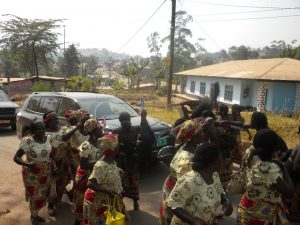
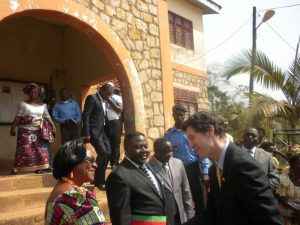
At the Kick-off momentum of the occasion the president of the Muslim Student Association Bamenda (MUSAB) was called upon to offer a word of prayer. This demonstrated the spirit of equality and inclusiveness that reflects MAHSRA’s activity platform.
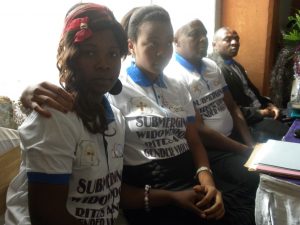 In order to bring the guest and other local participants to the raison d’être of the ceremony, the CEO of MAHSRA, Dr. Kelly Ngyah in his primary speech, enlightened all the authorities present on the direct implications of the barbaric widowhood rites practices inflicted on widows against national and international laws. After briefly elaborating on the exemplary cases of traditional rites practices that degrade the human dignity of widows and completely denies them of their freedoms, the CEO called on the Fons (local Kings) of the concerned localities acting as the customary rulers of their people to join efforts in combating such discriminatory practices against their women. He as well duly emphasized that besides the heavy damage that such practices may cause on the psychosocial well-being of the community widow, much is lost in their potentials as development instruments and tools for their localities.
In order to bring the guest and other local participants to the raison d’être of the ceremony, the CEO of MAHSRA, Dr. Kelly Ngyah in his primary speech, enlightened all the authorities present on the direct implications of the barbaric widowhood rites practices inflicted on widows against national and international laws. After briefly elaborating on the exemplary cases of traditional rites practices that degrade the human dignity of widows and completely denies them of their freedoms, the CEO called on the Fons (local Kings) of the concerned localities acting as the customary rulers of their people to join efforts in combating such discriminatory practices against their women. He as well duly emphasized that besides the heavy damage that such practices may cause on the psychosocial well-being of the community widow, much is lost in their potentials as development instruments and tools for their localities.
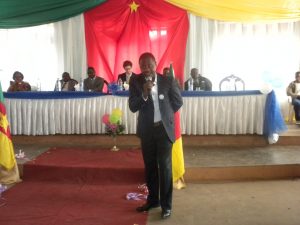 Dr. Kelly Ngyah further emphasized that, because majority of the local community women are widows who are supposed to be the main source of agricultural produce within the localities, inflicting psychological damages and social injustice on them will seriously affect and reduce such produces, thus gradually driving the entire communities into abject poverty, hunger and starvation. The rural women/widows therefore require:
Dr. Kelly Ngyah further emphasized that, because majority of the local community women are widows who are supposed to be the main source of agricultural produce within the localities, inflicting psychological damages and social injustice on them will seriously affect and reduce such produces, thus gradually driving the entire communities into abject poverty, hunger and starvation. The rural women/widows therefore require:
Better Treatment, Better Care and Better Community Support.
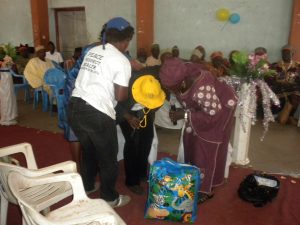
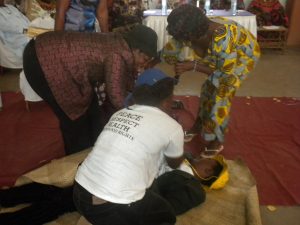
After the illustrative speech from the CEO, a series of drama activities were then performed by the newly created widowhood rights advocacy groups of Weh and Wum to demonstrate the nature of the barbaric widowhood rites practices faced within their localities.
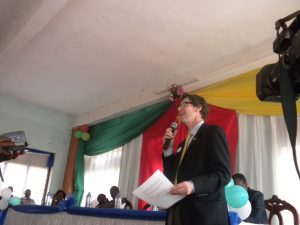
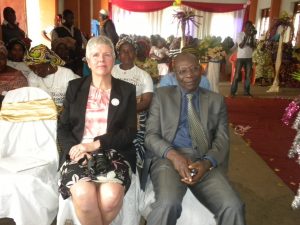
As well, other speakers of the occasion including the Canadian High Commissioner, the regional governor’s representative, the delegate of women empowerment and the family in Wum, and the Fons of Esu, Weh and Wum all emphasized and discouraged the non-acceptable nature that women and widows of the concerned localities are treated. Thus, they all acknowledged the worries faced by the local widows and encouraged the traditional authorities put in more efforts to combat the barbaric widowhood rites practices against their vulnerable women.
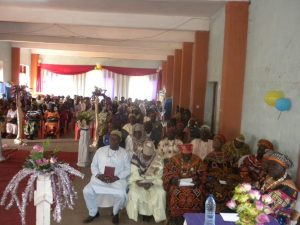
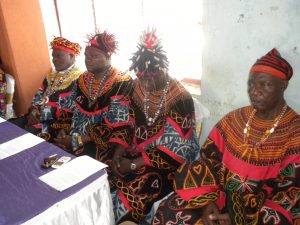
In order to consolidate the CEO’s quest for better treatment of the rural widows, the three fons who came with their entire community representatives (including the fulanis and Hausas) all made similar speeches that proved their commitment and understanding of the situation faced by their suffering women.
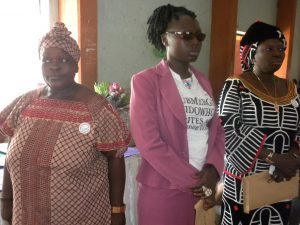
The CEO of MAHSRA also presented the newly formed ombudspersons widowhood groups or associations who were to undergo organizational capacity building and inter-family and community conflicts resolution trainings to the public officials therein present such that, their duties as the community overseers will be facilitated and given due public government support.
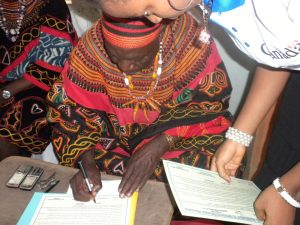
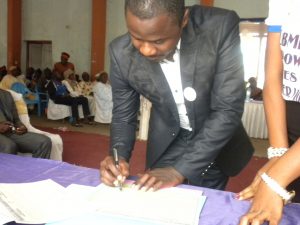
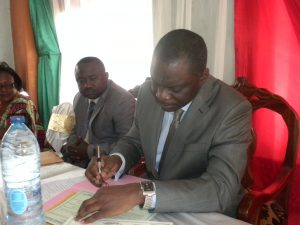
At the most crucial moment of the occasion through which the theoretical rhetoric needed to be consolidated by concrete and evidence based materialization of the issues at stake, the three Fons of the occasion were called upon to sign an advocacy agreement and thus commit themselves in ensuring that the women and widows in their communities were to be treated fairly and equally in accordance with the universal declaration of Human Rights. As such, the advocacy agreement was reached and signed between all three fons (local Kings) of Esu, Weh and Wum; the Senior Divisional Officer of Menchum Division and the CEO of MAHSRA.
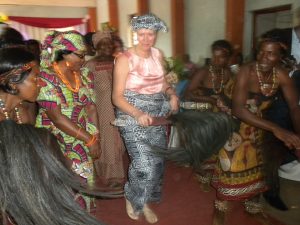
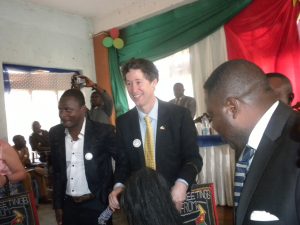
Widowhood rites to rights in action
Still during the ceremony, the High Commissioner’s wife was gently seized by the traditional women of the Aghem community to a secret corner within which she was dressed and crowned or named “Mbei Mbong Ichu”, meaning, the first Aghem woman that freed the entire women from their suffering and slavery. While she was returned to her husband, some traditional dances that led to the closure of the occasion were performed and this brought down to the dancing flour all the members on the high table.
Download the CEO’s Speech HERE[/vc_column_text][/vc_column][/vc_row]
